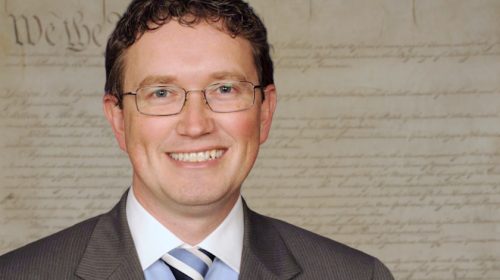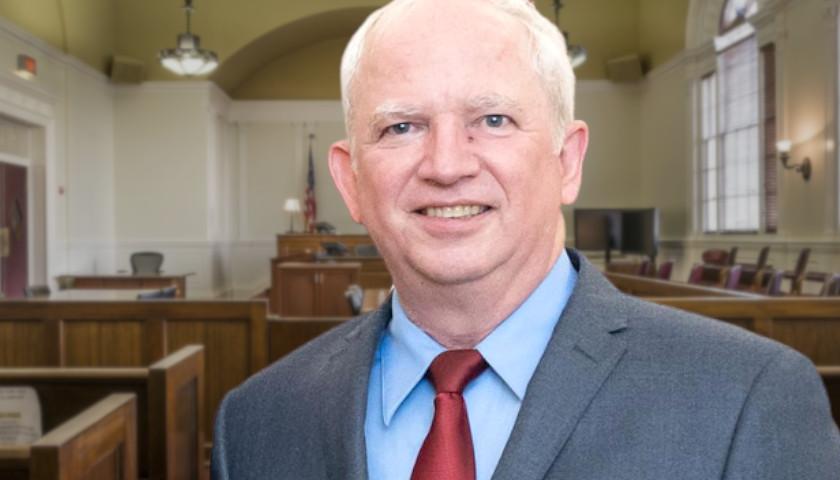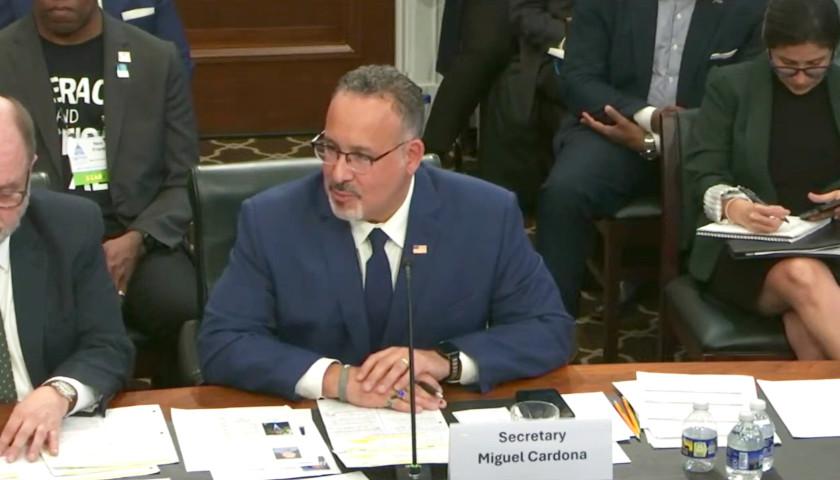During a Zoom call earlier this month with federal government finance officials, Senator Mark Kelly (D-AZ) called for censorship of unfavorable remarks on social media. He was referring to posts raising alarm about the financial stability of banks after the recent failures of Silicon Valley Bank and Signature Bank, which resulted in long lines of customers attempting to take their money out and the Biden administration stepping in to guarantee deposits of over $250,000, amounts the law doesn’t insure.
Legal scholar Jonathan Turley, a professor at George Washington University, expressed his concern in an op-ed for The New York Post titled “Censorship addicts: Democrats seek to squelch speech on banks.” He said, “Rather than convince citizens that their deposits are safe, it is easier to just silence anyone who disagrees with you. So now ‘the expense’ of free speech is too high if it might undermine faith in our banks’ stability.”
The Zoom call, which reportedly had a couple hundred participants, included representatives from the Federal Reserve, Treasury Department, and the Federal Deposit Insurance Corporation. Representative Thomas Massie (R-KY-04) tweeted on March 13, “Democrat Senator suggested last night that government should work with social media companies to censor information that could lead to a run on banks.” Massie said that Kelly cited fear of “foreign actors” using social media to undermine banks.
Representative Lauren Boebert (R-CO-03) also expressed her concern about Kelly’s statements. “On a briefing with Biden Under Secretary of the Treasury Nellie Liang regarding the SVB BAILOUT they are working towards and a member asked if they were reaching out to Facebook and Twitter to monitor misinformation and ‘bad actors,’” she tweeted. “And this administration AGAIN just committed the federal government to interfere with free speech. Unacceptable!”
Turley said Kelly was blaming “those pesky Russians again” and noted that “the list of subjects justifying censorship keeps getting longer.”
A spokesperson for Kelly tried to defend his statements, claiming they had been taken out of context. “The unsupported claim made by this blog post you referenced is false,” the spokesperson said in a statement to the Daily Caller News Foundation. “On the briefing, Senator Kelly asked about *foreign adversaries* potentially trying to take advantage of this situation by spreading misinformation.”
However, Massie pushed back at this minimization during an interview with the Public Substack. “I believe he couched it in a concern that foreign actors would be doing this,” Massie said, “but he didn’t suggest the censorship should be limited to foreigners or to things that were untrue. The people from the three agencies couldn’t answer him and just sort of took a pass on the question.”
During an interview with Fox News host Jesse Watters, Massie said the fact that Kelly didn’t limit the censorship to “false information or foreign information” was “chilling to me.”
JD Hayworth, who served as a U.S. Representative from Arizona between 1995 and 2007, wrote an article about Kelly’s remarks titled “Kelly’s censorship question may tip voters against him.” Hayworth said, “Whether Arizona voters will view their junior senator’s embrace of censorship as a much-needed tool — and even an asset to government — is doubtful.”
Kelly has one of the lowest approval ratings in the U.S. Senate. According to ratings by the political site FiveThirtyEight last year, he has a +4 net approval rating, which consists of approval ratings minus disapproval ratings relative to the FiveThirtyEight partisan leans of a senator’s states. Only a few senators have ratings that low or lower, whereas many are in double digits. Senator Kyrsten Sinema (D-AZ), who recently became an independent and is losing in polls to potential challengers, scored +2.
– – –
Rachel Alexander is a reporter at The Arizona Sun Times and The Star News Network. Follow Rachel on Twitter. Email tips to [email protected].
Photo “Senator Mark Kelly” by Gage Skidmore CC2.0.









